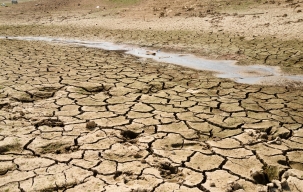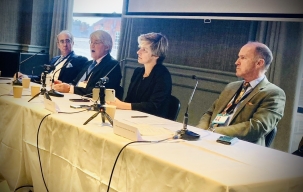Key dates
Latest
-
 Members content
Members content -
PodcastsDefence & Security — 2 Oct 2024
Podcast: CMEC at CPC24 pt.2: Does 'Stop The Boats' start in the Sahel?


Addis Ababa
112 million
Republic headed by president
President H.E Ms Sahle-Work Zewde
Prime Minister H.E Mr Abiy Ahmed
May 28th
H.E Mr Teferi Melesse Desta
The Embassy of the Federal Democratic Republic of Ethiopia, 17 Princes Gate, London SW7 1PZ
H.E Dr Alastair McPhail CMG OBE
The British Embassy, Comoros Street, Addis Ababa, 858 Ethiopia
Strong economic growth
In recent years, Ethiopia has enjoyed strong economic growth, although, with the exception of agriculture, this took a hit during the COVID-19 pandemic. This growth has helped one of the poorest countries in Africa lift millions of people out of penury, decreasing those living under the national poverty line from 30% in 2011 to 24% in 2016
Ethiopia is the second most populous country in Africa after Nigeria as well as being the continent’s oldest independent country. It was colonised briefly by fascist Italy from 1935 to 1941 before being liberated by British, Commonwealth and Ethiopian troops.
Ancient Christian heritage
It has a unique cultural and religious heritage, being the host of the Ethiopian Orthodox Church, one of the oldest Christian denominations with a presence in Jerusalem for more than 1,500 years. Haile Selassie, the last Ethiopian emperor, claimed a monarchical lineage that stretched back almost 3,000 years to King Solomon of Israel and the Queen of Sheba.
The last emperor’s mishandling of a serious drought led to his fall in 1974 and his replacement by Marxist dictator Mengistu Haile Mariam. Another serious famine in 1984-85 devastated much of the country leaving 1.2 million dead and a huge crisis of internally displaced people.
In 1991, Mengistu was deposed by the Ethiopian People’s Revolutionary Democratic Front. Meles Zenawi took over and established stability and considerable economic advances during his 19 years in power. The years 1998-2000 witnessed a border conflict between Ethiopia and Eritrea. In 2018, new prime minister, Abiy Ahmed, ended the state of war with Eritrea, earning him the Nobel Peace Prize in 2019. Eritrea subsequently supports Ethiopia in its internal fight against rebels in Tigray.
War with Tigray
Tigray is the northern-most region of Ethiopia and politicians from Tigray's most powerful party, the Tigray People's Liberation Front (TPLF), effectively led the national government for almost three decades following the ousting of the military regime in 1991. The TPLF had played a leading role in the struggle against the junta and was the foremost of the 4 political parties to run the country from 1991, but concern grew about human rights abuses.
TPLF power held until Abiy Ahmed became prime minister in 2018. He dissolved the 4- party coalition in 2019 but the TPLF opposed reforms being pursued by Mr Ahmed and refused to join his new Prosperity Party. The political feuding eventually led to conflict between Tigray and Mr Ahmed's government which began in earnest in November 2020. The government has also been supported by troops from Eritrea, which borders Ethiopia to the north.
Spread of Tigray conflict
The conflict has spilled over into neighbouring countries, particularly Somalia, as well as neighbouring regions. This includes the heavy involvement by the neighbouring northern region of Amhara, whose militias have actively participated in the conflict by the government's side against Tigray.
Amhara has annexed parts of western Tigray during the conflict and there have been reports of ethnic-cleansing of Tigrayans by Amharans in these areas. Amhara regional announced plans to re-settle annexed areas with 15,000 Amharan families, and this was said to be underway by July 2021.
Humanitarian crisis and alleged war crimes
The conflict has led to a humanitarian crisis, displacing many thousands of people. At least 50,000 have fled to neighbouring Sudan. There have also been reports of atrocities, disappearances and sexual and gender-based violence.
In September 2021, US President Joe Biden signed an executive order authorising new sanctions on Ethiopia and Eritrean and government officials following reports of atrocities committed by troops from both African nations in Tigray.

